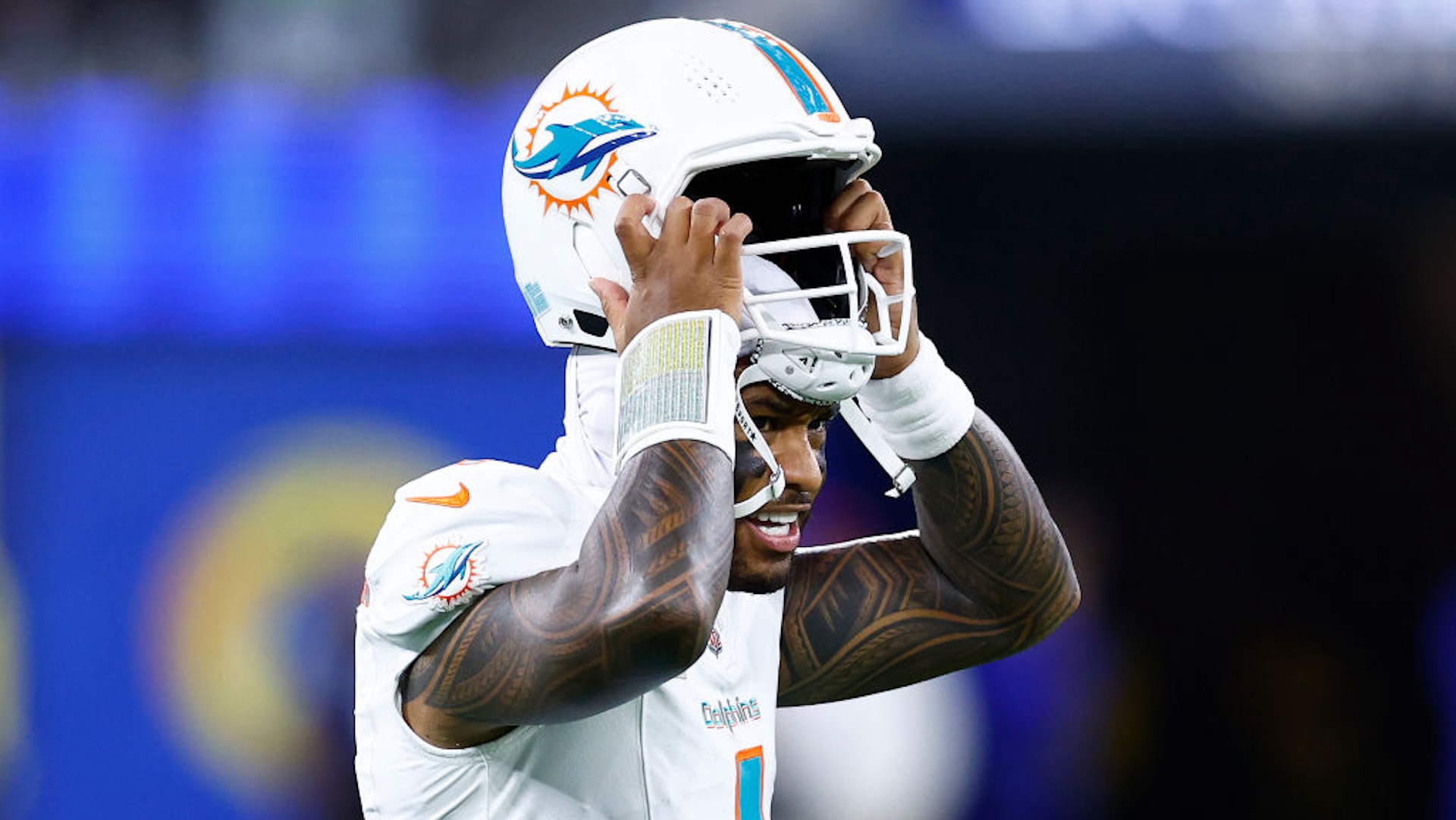Before Monday night's game between the Miami Dolphins and Los Angeles Rams, ESPN reporter Jeff Darlington and Dolphins quarterback Tua Tagovailoa teamed up to produce one of the year's strangest pieces of NFL-related media.
Tagovailoa is exactly the sort of young, talented, charismatic quarterback that the league and its broadcasters crave in order to sell fans on a Monday night game between two mediocre teams, so it makes sense that he would be the centerpiece of ESPN's pregame coverage. Tagovailoa's marketability is complicated, however, by the fact that he recently completed yet another stint on injured reserve after being concussed in Week 2. Tagovailoa's career, from college to the pros, has been riddled with brain injuries, at such an alarming rate that many pundits were urging him to retire following the hit he took in September. Tagovailoa didn't retire, though, and now he's trying to salvage the Dolphins' season. It's a story worth telling, surely, but how exactly does a network sell the story to fans?
Pretty awkwardly, it turns out. Darlington's conversation with Tagovailoa had all the tonal and visual markers that will be familiar to anyone who has sat through a pregame mini-profile about an athlete returning from injury, or overcoming some other form of adversity. We're meant to receive this type of interview as a frank, vulnerable conversation that ultimately ends on a note of inspiration.
“If (doctors) would have told me that I couldn’t play, I would have definitely taken that into consideration. But there were no talks like that.”
— Jeff Darlington (@JeffDarlington) November 12, 2024
Tua sits down to discuss the Dolphins season — and his path back to the field after spending 4 games on IR.
pic.twitter.com/Bh6wvwK6t2
The trouble in this case is that Tagovailoa's injuries can't be cleanly metabolized the same way a catastrophic knee injury or even a heart-stopping tackle can be. What makes Tagovailoa fundamentally different from any other athlete sitting on a couch, talking about the the resolve they needed to summon in order to overcome the existential threat of an injury, is that his worst problems are most likely ahead of him. Brain injuries are frightening not just because of the fencing responses they induce, or the number of players they put on IR, but because of the dark possibilities they create in the future. They are frightening because of Dave Duerson, Jovan Belcher, and Junior Seau.
All of this put Tagovailoa and Darlington in an awkward position during their conversation. When Tagovailoa said that his goal for the rest of the season is to "stay healthy," and Darlington asked, "How do you do that, Tua?" the quarterback could only ignore the question. When Darlington went on to ask Tagovailoa what he wants to be known for, to which Tagovailoa responded, "I'll tell you what I don't want to be known for: the poster boy for concussions, that is for sure," the editors of the interview couldn't do anything but bring it to an abrupt end.
We're well on the other side of the NFL's concussion crisis. Where once there was a scandal, there is now just a dull and grim fact of life. A broad understanding of what football does to brains and what brain injuries do to people is a good thing, and players should have the agency to make their own decisions about their lives and careers. But what we see in Darlington's interview are the ways in which brain injuries, understood and accepted as they are, still struggle to fit neatly into the story the NFL would like to tell about itself.
Darlington's conversation with Tagovailoa was odd and uncanny precisely because it could be. ESPN doesn't actually need to sell anyone on watching an NFL game, but it still needs to go through to motions for the sake of filling airtime. Will Tagovailoa end up as the poster boy for concussions? It's the one interesting question that was raised during the interview. There's no time for follow-ups. The game's on.






